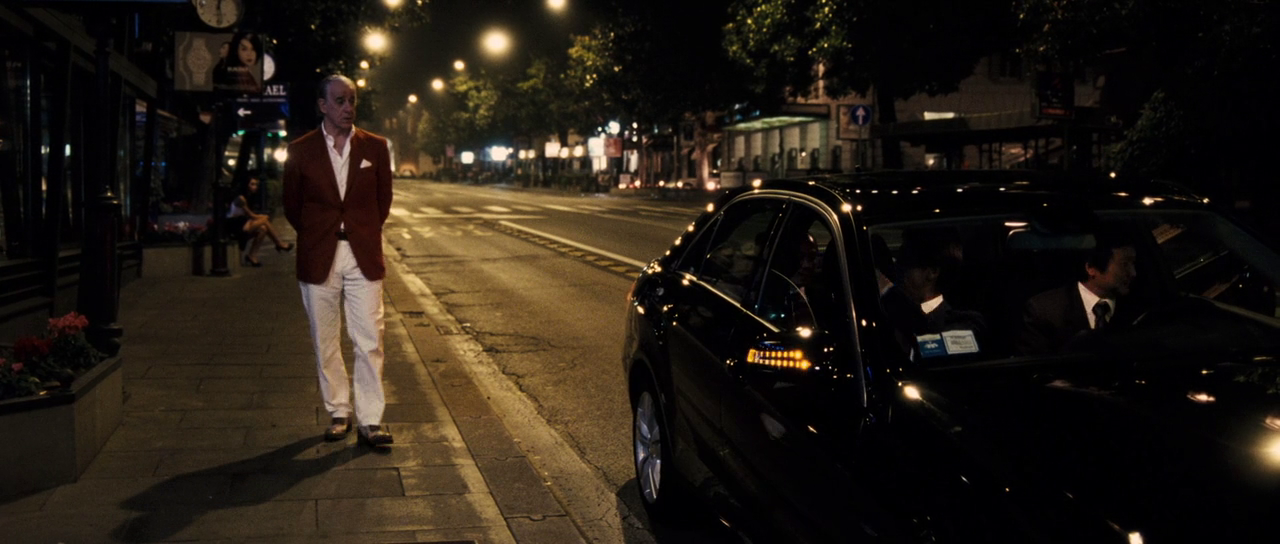The Great Beauty is an Italian drama directed by Paolo Sorrentino. The film won 1 Oscar in Best Foreign Language Film of the Year category, One BAFTA award for the Best Film not in the English Language and numerous other prizes.
On the day of his 65th birthday, Jep Gambardella begins to scrutinise his past as well as plumb the mysteries of the world in its entirety – an amalgamation of absurd, charming, repelling and profoundly appealing…
“Mr Sorrentino’s magnificent feat is bound to gratify those grubbing for sublimation”

The title of Paolo Sorrentino’s The Great Beauty pretty much speaks for itself forasmuch as it encapsulates not only the central theme of the flick, but also illustrates what the audience is going to experience while viewing this enrapturingly invigorating, substantial as well as multifaceted opus fraught with enthralling visuals which are likely to quench even the most fastidious. Evoking many a significant issue, Mr Sorrentino’s magnificent feat is bound to gratify those grubbing for sublimation and although it is slightly reminiscent of Frederico Fellini’s La dolce vita in some aspects, it possesses sufficient dose of originality to be regarded as a totally separate and uncannily ripe, mature venture of phenomenal artistry. The motion picture is embarked on with a relatively tranquil scene portraying a group of Japanese tourists, one of whom drops dead as though he was stricken by the overwhelming, bliss-inducing ancient architecture of Rome. Perhaps as a manner of juxtaposing the old and modern part of Rome, the preamble is stridently contrasted with the subsequent sequence exposing hedonistic lives of Roman bourgeoisie voraciously gulping drinks and succumbing to the riotous vortex of nocturnal life. Apart from the perpetually vehement camerawork nimbly embracing the lustre of luxuriant illumination lighting up the copiously arranged party, initially, the opus almost disharmoniously veers between the meretricious decadence and the reflexivity prior to plunging into the latter along with its protagonist who begins to perceive the world from an absolutely new perspective. Notwithstanding, what particularly marvels about these several instants is how adroitly Mr Sorrentino frames the ostensibly contradictory and ravishing panorama comprising of confluent antiqueness and modernity, implementing expeditious montage as well as the swift, proficient camerawork of Luca Bigazzi. The director auspiciously flaunts his aesthetic fortes and through utilising horizontal and symmetric shots, he endows his viewer with a compelling sensation of systematicness, visual voluptuousness and compounds the sense of Rome’s eternality.

The protagonist – Jep Gambardella – is an aging writer who has written solely one book and strives to disclose the titular great beauty which he could aim to. He roves through sun-soaked streets of Rome and tenaciously seeks for the ideal, darting surreptitious glances at passers-by, a nun picking oranges and whatever comes in sight. He proceeds though life by following the stream consisting of meetings with other intellectuals, fatuous, grotesque performances and dealings with complacent haute bourgeoisie which sporadically cloaks its languidness with flamboyant eloquence, conceived merits and self-delusions. Contemplating his condition, Jep comes to conclusion that he ought not to squander the precious time he has been given and chooses to discard superfluous activities for the sake of finding the right path he can trot on. On being questioned why he hasn’t written another book for 40 years, he responds: “I was looking for the great beauty, but I didn’t find it.” Jep grows increasingly disillusioned with the capitol which fascinates in its entirety, yet the moment one approaches an individual, the city’s beauteousness volatilises. A singular individual constitutes solely a blot in the impressionistic picture of Rome and as a separate being, one is most likely to prove as prosaic as the concepts they externalise. For instance, one character alludes to her writing a Proust-style novel, but the sentence sounds trivial, almost comic as it is verbalised by the female in an extraordinarily weary, dispassionate way and probably remains nothing but a slick mirage conjured up to delude herself and her milieu. Ultimately, Jep’s struggle to attain the titular great beauty is likewise a sensuous voyage via uncannily prepossessing visual compositions through which the camera soars unrestrainedly.

Toni Servillo is terrific as Jep. In the satirical instants, he almost effortlessly transforms the screen into the stage on which he can exhibit his flair by impersonating his part in a wonderfully humorous and exhilarant manner. Nevertheless, once the comical elements recede, he grows appropriately pensive and convinces with his moderately wrinkled, refined countenance which duly cooperates with his character. The movie generally revolves around Jep and depends on great Toni Servillo’s acting skills and it wouldn’t be an overstatement to argue that it is his film, but such performers as Sabrina Ferilli, who satisfies in the role of Ramona, Carlo Verdone and Galatea Ranzi certainly stay in one’s mind.
The cinematography by Luca Bigazzi is enchantingly beautiful and astoundingly brisk in its voluminous fluxes of orange and blue hues as well as engaging buoyancy which clothe the flick in a drapery so smooth and glossy that it would take much more time to fully peruse and take delectation in the pic’s artistic elaborateness. The music by Lele Marchitelli never acquires the prominence it possibly deserves as it is usually interlaced with some more memorable classical tracks and his jazzy scores with lushly exploited violin and piano are somewhat less distinct vis-à-vis the remainder of the soundtrack.

Most probably, more than one viewing is prerequisite to grasp the entire resonance of Mr Sorrentino’s vigilantly constructed visual poem which demands from the viewer a great deal of patience and sensitivity. Whereas some people will indubitably find this stylistically affluent effort extortionately meandering, impressionistic and somehow tedious to sit through, The Great Beauty remains a prodigious aesthetic attainment which formulates its philosophical musings pertaining to the sense of one’s existence in the consumeristic society in a most luxuriant and indulging manner. All of us are Jeps in a way and we’re to find something which will provide our lives with a purpose. What this thing is going to prove, it’s up to you.
9/10 stars – stunning






